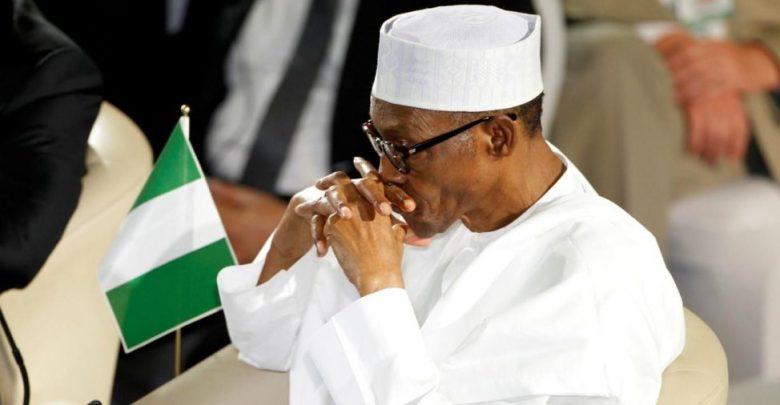It is a time to reflect on this thing called character. John McCain, a significant Senator from Arizona, United States (1936-2018) wrote a book on character and the title is ‘Character is Destiny’ (2005). That title isn’t original to him. He borrowed some brilliance from a quote attributed to the Greek philosopher, Heraclitus who wrote on the subject we hardly talk about here in our milieu where we can no longer find any nexus between character and learning.
There are so many characters to reflect on in this place: the character of our leaders, character of our ancestors and founding fathers, the character of the nation, the character of our dealers who sometimes parade themselves as leaders, the character of our teachers, character of our business managers, the character of our politicians, character of our state and non-state actors, the character of our non-governmental organisations and non-governmental individuals, etc.
But today let’s ponder on the most important character today within the construct of nation-building. I attended a media function recently and most of the contributors spoke angrily on so many triggers of our under-development that should be addressed by our leaders. But one of our senior colleagues stole everyone’s thunder when he said, “there are so many socio-economic problems as my colleagues have mentioned. There are so many issues ranging from debt burden to naira-to-dollar exchange rate palaver…There are issues of not-so-serious but overpaid legislators…We have the monster called corruption, fighting its fighters. We have issues of food insecurity, we have issues of what appears to be the most serious one – insecurity. But I tell you the most critical challenge we have, which we hardly talk about is our leaders’ lack of attention to the issue of ‘nation-building….”

The media executive received some mild, spontaneous applause for the deep concern for Nigeria. My brother was spot-on. The urgent task isn’t spirited preparedness for the 2023 elections. It is how to rebuild this country’s broken walls. I once wrote here that we need a Nehemiah, that classic example of how to rebuild a nation with only one weapon: passion.
Our country has never been so divided. It is even on the brink. We no longer have Nigerians. We now have Nigerians of Igbo extraction, Nigerians of Yoruba nation, Nigerians of Fulani origin, Nigerians of Niger-Deltan people, etc…No one is proud to say a simple prayer, ‘God bless Nigeria’ as most people in any congregation would like to ask, Whose Nigeria?
This is why I would like to write this to those who would like to see a new Nigeria. At this time, ‘our leaders have gone mad again’ and they have put a knife on a thread that has held us together since 1914 and so things have fallen apart. But there is no need to read from a book of lamentation that our leader has publicly presented to us. I would like to say this from the ancient word that is ever true: ‘He who considers the weather will not sow…’
So, our politicians in the Buhari administration should note that the deft management of our federal character principles, which our leaders gave us through the 1979 Constitution, is the weapon to rebuild the broken walls of love that have kept us together. It is not permissible for our leaders to be playing to the gallery that rotational presidency isn’t in the letters of our constitution. But then it is in the spirit of the Constitution and the constitutions of the political parties. They are denying it because they know we don’t read and the political economy of legal practice here has made it difficult for our lawyers to be lawyers indeed.
There have been numerous criticisms of the president on the serial violation of the federal character provisions in the constitution but he has never listened to anyone. He thinks he is the law. The law doesn’t rule him. But the situation has become so messy and scandalous that a lawyer has again sued the President and his Attorney-General on their sensitive character that is not federal, after all. The background:
An Abuja-based lawyer, Festus Onifade, the other day sued President Buhari before a Federal High Court in Abuja over an alleged gross breach of Nigeria’s constitution in relation to recent Federal Character Commission (FCC) appointments. The President was sued alongside the Attorney General of the Federation (AGF) and Minister of Justice, Abubakar Malami, FCC, Mueeba Dankaka, and Mohammed Tukur. The grouse of the plaintiff is that Mr. Buhari allegedly violated some provisions of the Nigerian constitution in the manner of his political appointments.
In the suit marked FHC/ABJ/709/2021 and instituted on his behalf by his counsel, Moses Owuru, the plaintiff accused Buhari of violating sections 7 and 8 of the Constitution in the appointments of Ms Dankaka and Mr Tukur as Executive Chairman and Executive Secretary of the FCC respectively.
The plaintiff alleged that the two appointments were in clear breach of section 4 of the FCC Act having been made from the Northern part of the country. He, therefore, prayed the court to issue an order compelling Buhari to immediately dissolve the board of the commission and re-constitute it to reflect the principle and letters of the Federal Character Commission as enshrined in the 1999 constitution. The plaintiff who claimed to have been aggrieved with the appointments also sought another order to compel Mueeba Dankaka and Mohammed Tukur to vacate their offices without any delay. In a 21-paragraph affidavit in support of the suit, plaintiff averred that Buhari on March 18, 2020, appointed Ms Dankaka and on June 2, 2020, was confirmed by the Senate as Executive Chairman of the FCC.
He also claimed that Buhari appointed Tukur on April 6, 2017, as Executive Secretary of the FCC. He added that the appointee had continued to function in office since the expiration of his tenure on 6 April 2021. The plaintiff averred that since the two appointees being from the North, Buhari breached sections 7 and 8 of Nigeria’s constitution with their appointments. He urged the court to declare the appointments unlawful, unconstitutional, illegal, null and void. The plaintiff also wants the court to declare that Buhari and other defendants in the suit are bound to abide by the provisions of the constitution as they relate to the principle of proportional sharing of all political offices.
You will recall that I drew attention to this anomaly here on June 18, 2017, in an article titled, ‘A Federal Character Commission Without Federal Character’ https://guardian.ng/opinion/a-federal-character-commission-without-federal-character.
But as usual, the president ignored the federal character bogeyman. Now it has become very embarrassing to the administration. As I was saying of the Police Force of the convoluted federation recently, for instance, the President appointed the Minister of Police Affairs, the Inspector General of Police from the North. Then there is a recent creation of our federal legislature, the Police Trust Fund whose Board has a Chairman and a Secretary. This was an opportunity for our president to right some wrong for our police force and its administration to reflect the character of the federation. But the accident-prone presidency would not get anything right. On May 6, 2020, the President appointed the Board of Trustees of the Police Trust Fund and named former Inspector General of Police, Suleiman Abba as Chairman of the Board of Trustees and Alhaji Aliyu Sokoto as Executive Secretary of the Board. The Inspector-General of Police is a member of the Board representing the Police Force. In what way is this 7-Man Board different from the absurdity at the Federal Character Commission?
In October 2018, The Guardian editorial board drew the attention of the President to the ethnocentric tendencies inherent in his appointments when two key officers of his administration from the South were replaced with citizens from the North. Then the newspaper had noted that: ‘With each passing day, it is becoming apparent that President Muhammadu Buhari’s suspected ethnocentric and nepotistic tendencies are attaining an embarrassing proportion. The latest demonstration of this longstanding suspicion was the appointment of Mr. Yusuf Magaji Bichi as Director-General of the Department of State Services (DSS) to replace Mr. Matthew Seiyefa, who was recently appointed by then Acting President Yemi Osinbajo. Shortly after that, the President had also picked former Minister of State for Finance, Hajia Zainab Ahmed to replace Kemi Adeosun who resigned over certificate forgery scandal…’
These and other past actions have reinforced speculation about President Buhari’s prejudice and insensitivity to the principles of federal character in appointments. This is curious given the status and stature of the president as a retired army general and former military head of state.
Ordinarily, there is nothing intrinsically wrong in a president appointing persons with whom he is comfortable, or those he trusts. Working with persons with whom one has familiar fundamental and rationally grounded interests makes the job relatively easy. This is because a sense of understanding is more likely to be achieved. But since 2015, this hasn’t helped in national development and nation-building.
There are cogent reasons why this action calls for concern. First, it is a violation of the principle of Federal Character. The principle of Federal Character, as contained in Act No. 34 of 1996, which established the Federal Character Commission, is an attempt to entrench fairness and equity in the distribution of public posts and socio-economic infrastructure among the various federating units of the Federal Republic of Nigeria. It has been featuring in Nigeria’s constitution since 1979. And it is in the current 1999 constitution.
Section 14 (3) of the 1999 constitution reads: ‘The composition of the Government of the Federation or any of its agencies and the conduct of its affairs shall be carried out in such a manner as to reflect the federal character of Nigeria and the need to promote national unity, and also to command national loyalty, thereby ensuring that there shall be no predominance of persons from a few States or from a few ethnic or other sectional groups in that Government or any of its agencies’.
The phrase Federal Character was first used by the late General Murtala Ramat Muhammed in his address to the opening session of the Constitution Drafting Committee on Saturday, October 18, 1975. The federal character of Nigeria, according to the CDC’s report of 1977, refers to the distinctive desire of the peoples of Nigeria to promote national unity, foster national loyalty, and give every citizen of Nigeria a sense of belonging to the nation notwithstanding the diversities of ethnic origin, culture, language or religion which may exist and which it is their desire to nourish, harness to the enrichment of the Federal Republic of Nigeria.
The Federal Character principle has its root in proneness for fairness. The 50 wise men who drafted the 1979 Constitution understood that disposition. They justified the entrenchment of the federal character principle in our constitution using the following words, ‘There had in the past been inter-ethnic rivalry to secure the domination of government by one ethnic group or combination of ethnic groups to the exclusion of others. It is therefore essential to have some provision to ensure that the predominance of persons from a few states or from a few ethnic or other sectional groups is avoided in the composition of the government, in the appointment or election of persons to high offices in the state…’
Therefore, whimsical violation of the principle of federal character is not only a bad precedent but also a potent demonstration that government does not care about nation building, after all.
Stay ahead with the latest updates!
Join The Podium Media on WhatsApp for real-time news alerts, breaking stories, and exclusive content delivered straight to your phone. Don’t miss a headline — subscribe now!
Chat with Us on WhatsApp







